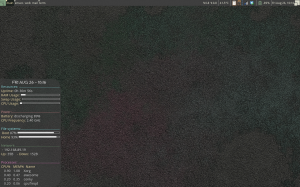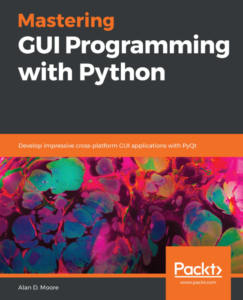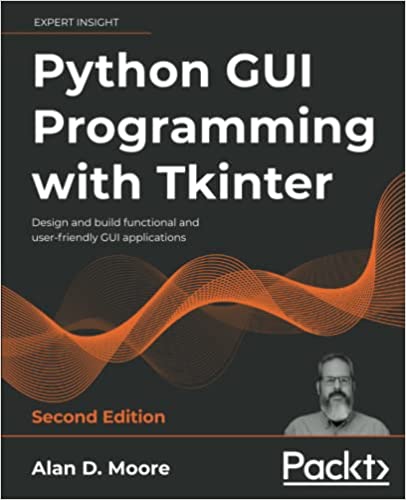On the bench today: a mysterious black point-of-sale system recently retired from use at a Parks facility. This victim of the end-of-XP upgrades landed on my desk since it wouldn’t run Windows 7, to see if it could be made useful with Linux.
Reviving your old PC with Linux, Part VI: Building your own lightweight remix
In the previous article of this series, I covered a variety of “remix” distributions of Linux aimed at older computers, and posed the question “why not build our own”? In this article, we’ll look at doing exactly that.
Our goal will be to set up a basic desktop system, using only the necessary components, such that it will run reasonably well on a roughly ten-year-old computer.
When you mention Emacs on the Internet
When you mention Emacs on the Internet – be it on a blog, forum, mailing list, IRC channel, reddit thread, or tweet – certain responses must inevitably follow.
You were just sharing a bit of news, or asking a question about a feature, or plugging your new webkit-buffers.el library that allows Emacs to really browse the web (somebody write this, please?); but it doesn’t matter. The same responses must always follow:
- Someone must say “Emacs is a great OS. It just needs a good text editor.”
- Someone must post a link to the XKCD comic about Emacs. You know, the “M-x butterflies” one. No, I’m not giving you a link to it.
- Some obviously lost and confused person who has been raised on Visual Studio / Eclipse / XCode or some other bloated IDE wonders incredulously that people still use “those old text editors” for serious development.
And then, of course, the Vi(m) users descend. I don’t know why. I have never, as an Emacs user/fan, butted into a discussion of Vi(m) stuff with my sanctified opinions about it, but like turkey vultures to a possum carcass, Vi(m) fanboys descend on every mention of Emacs with predictable regularity. Their comments vary:
- Some post lengthy walls of text about how they once tried Emacs and it gave them boils which were only cured by switching to Vim.
- Some just say pointless junk like “Vim is better” or “Vim FTW!”
- Some just type “Vim” or “Vi”. Nothing else, no explanation, just that. I don’t get this; it’s as if balance can only be achieved if every mention of Emacs is countered with a mention of Vim. Or maybe it’s some kind of insect-brained knee-jerk response: “I see word Emacs. Must type word ‘Vim'”

If anyone takes the bait (and someone usually does), flame wars ensue that span the gamut from Richard Stallman’s personal hygiene issues to RSI horror stories to “the year of the Linux desktop”.
Then some clever person comes along and posts a link to that rant about “ed”, at which point the thread is locked, comments are disabled, or everyone just agrees they’ve got better things to do.
Blogging in Emacs, part 2
When I first set up this blog, I attempted to use the weblogger.el extension to blog to this site. Alas, it gave me quite a bit of trouble, so I had to scrap it.
Recently, though, I’ve been trying to get a handle on Emacs org-mode, and noticed an extension called “org2blog/wp”. If it can work, seems like a good way to learn org mode. So, if this works, it’ll be my first post from org2blog. Let’s see how it goes….
Quick google search in Awesome window manager
I’m back to using AwesomeWM on my work desktop; not sure what brought me back, but I will say that overall I prefer the way it handles multiple monitors and multiple desktops a little better than how KDE does it. That, and KWin’s tiling mode is still useless with dual monitors even in 4.8.
Something about running a window manager like Awesome makes you uber-sensitive to operations that require you to do a lot of mouse-maneuvering or manual window management, and thus encourages you to streamline these operations. One such thing for me is searching google for something, an activity which I’m bound to do at least six dozen times during a workday, especially when developing (since I can’t remember API’s for squat).
With a little help from a bash script and surfraw, I came up with a pretty cool solution. (more…)
How to install Debian offline
When tinkering with old computers, there is little about an operating system quite as endearing as flexibility at install time. The “Universal Operating System” is no slouch in this regard; the Debian installer will work quite happily from CD, DVD, USB drive, PXE boot (my personal fav), and even a Windows executable.
But what if none of those is an option? Suppose you’re stuck with a system with no optical media, no USB boot, no PXE boot, and no OS? Can we get Debian on such a machine?
You bet we can! (more…)
Reviving your old PC with Linux, Part IV: Fully Lightweight Distros
By now, we have established a vocabulary with which we can discuss distributions and their strengths and weaknesses, and thus understand the best uses for them given our needs and resources. So in this article, I’ll talk about some actual “fully lightweight” distributions (for those who didn’t read the last article, “fully lightweight” refers to distros that are built from the ground-up to be small and fast. It doesn’t include lightweight remixes or spinoffs of other distros).
Awesome Window manager: my thoughts after the first month.
For years I’ve been a die-hard KDE fan; while I’ll admit to temporarily jumping ship during the tumultuous 4.0 through 4.2 release cycles, and routinely trying out other desktop environments just to see how they schoon, I’ve pretty much stuck with my pal Konqi since back around 3.4.
For my desktop, especially at work, KDE still runs the show. But KDE doesn’t seem to enjoy running properly on my laptop, and frankly does a better job of getting in the way of my workflow than accelerating it. After some time with XFCE, LXDE, Openbox, and even IceWM, I think I finally found what I’ve been looking for in a desktop environment: Awesome.
 The Amiga. If you weren’t of computing age during the Bush Sr. administration, you may not have heard of this legend wrapped in an enigma wrapped in a white case. The Amiga inspired frenzied superlatives from its users (including, notably, pop artist
The Amiga. If you weren’t of computing age during the Bush Sr. administration, you may not have heard of this legend wrapped in an enigma wrapped in a white case. The Amiga inspired frenzied superlatives from its users (including, notably, pop artist 

